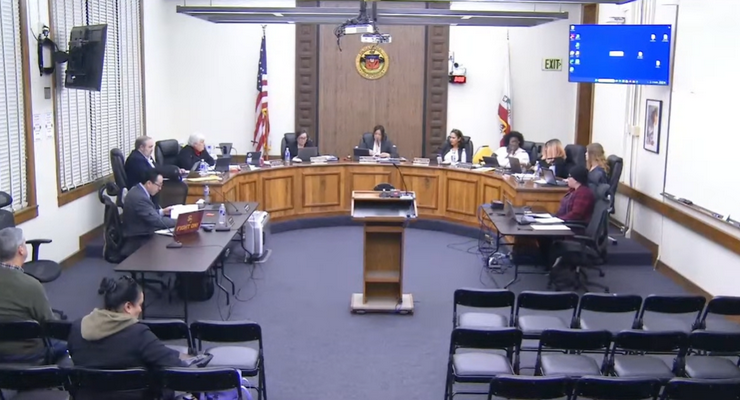Pasadena Police Chief Phillip Sanchez has issued his Response to the OIR Kendrec McDade shooting Report. While claiming to agree with the Office of Independent Review Group Recommendation #20 that “individual feedback” be given to Officers involved in shootings, his Response actually is disagreement- masquerading-as-agreement.
This evasion by the Chief arises from his unwillingness to admit that the Officers who killed McDade made tactical mistakes that put them in the situation where they may have had safety fears. Chief Sanchez’s Response to OIR Report Recommendations #23-24 avoids dealing with the Officers’ 10 tactical mistakes which may have put them in a situation where they had safety concerns – an evasion which is the source of his refusal to embrace meaningful feedback to the involved Officers.
Disagreement posing as agreement on feedback to the involved Officers
Chief Sanchez’s Response says that the PD agrees with Recommendation #20 to give individual feedback to involved Officers and that the PD during administrative reviews “routinely provides feedback to staff through various mechanisms include (sic) briefing, training bulletins and meeting (sic?).” The OIR discussion that is the basis for Recommendation #20 is the PD’s jaw-dropping statement to OIR that the Officers were not given specific feedback because the PD “did not want to single those officers out or cause them to perceive executive staff was overly critical of their performance.”
Agreement with Recommendation #20 would lead both (1) to belatedly giving the involved Officers the specific feedback that the PD notified OIR it had not given and (2) committing to giving specific feedback to involved Officers in any future shootings. After nearly 4 years since the involved Officers killed McDade, the Chief’s Response does not say that they have been given specific feedback, does not say that those Officers will ever be given specific feedback, and does not say that Officers involved in future shootings will be given specific feedback. Rather, his Response evasively asserts that the PD provides “appropriate feedback” through a cryptic form that, even if it were filled out and sent to involved Officers, does not provide for any specific feedback. Chief Sanchez’s response thus is an evasive disagreement-posing-as-agreement. Why is Chief Sanchez so obstinately opposed to giving the involved Officers feedback?
What Chief Sanchez’s Response must avoid
Answering why the PD still won’t agree to give the Officers who killed McDade specific feedback takes us to the OIR Report’s Recommendations ##23-24 – recommendations which the Chief’s Response does not agree with but rather argues with by saying that the Department has been doing just fine. Recommendation #23 itemizes 10 tactical blunders that put the involved Officers where they may have feared for their safety – i.e., radioing omissions, failures to communicate their plans, entering an unsafe thoroughfare, driving with a gun, failing to reevaluate after crashing the patrol car, splitting apart, trying to apprehend rather than contain, using the unauthorized “cut off/box in” maneuver, and stopping the car too close to a running suspect –, and recommends evaluating whether those tactical decisions put the Officers in a position where they may have feared for their safety.
Recommendation #24 more generally recommends avoiding tunnel vision that looks only at the moment of shooting and instead recommends looking at the entire chain of events, including the tactical decisions that led to the Officers shooting.
Our previous Pasadena Now Op-Ed on tunnel vision set out the connection between the PD’s tunnel vision and preserving the narrative that the Officers’ were faultless in the City’s defense of McDade’s mother’s wrongful death lawsuit. Since the lawsuit settled 1 ½ years ago, we had hoped that the PD would at least belatedly provide specific feedback to the involved Officers, agree to do so in the future, stop defending tunnel vision, and start recognizing and analyzing the Officers’ tactical mistakes. Chief Sanchez’s Response does none of these.
Chief Sanchez’s irrationality defense
Chief Sanchez offers two rationales for perpetuating tunnel vision that avoids analyzing pre-shooting tactical mistakes and thus obviates the need to give the Officers specific feedback about their tactical mistakes. 1st, he asserts that the Department’s training and analysis have been just fine; the unnecessarily dead body of an unarmed African-American youth is the stark rebuttal to that assertion. 2nd, his Response relies upon asserting that “officers are required to make split-second decision in circumstances that are tense, uncertain and rapidly evolving.” We call that the “irrationality defense” – i.e., the claim that tactical decisions in high-pressure circumstances cannot be rationally examined. The PD asserted the same defense to rational analysis of pre-shooting tactical decisions, and the OIR Group rebutted it: “The Department concluded that the involved officers did the best they could under ‘chaotic’ circumstances. In our view, it is precisely the ‘chaotic’ circumstances that demand officer restraint and the development of a thoughtful and safe tactical apprehension plan.”
When we don’t study bad history, we repeat bad history. When we give police the power to take away citizens’ life and liberty, there is a corollary obligation to have effective oversight that includes learning from past mistakes. A police administration which throws up its hands and refuses to engage in rationally examining its bad history in the McDade shooting acts indefensibly. The PD’s irrationality defense is unacceptable.
The PD’s past opportunism’s long-term consequences for institutional corruption
The Pasadena PD, having gone down an opportunistic road sacrificing meaningful internal oversight in order to avoid paying McDade’s mother more money in her wrongful death lawsuit, is now locked into defending the bad practices demanded by its opportunism. The initial institutional corruption of subverting a meaningful administrative review now breeds the institutional corruption of the Response’s cover-up defending the indefensible. Is the price the City is paying on police and City executive credibility and the potential price from future tragedies stemming from the PD’s refusal to honestly study its bad history worth the savings the City made in its cheaper settlement with McDade’s mother?
Dale Gronemeier and Skip Hickambottom are local civil rights attorneys who represent Kendrec McDade’s mother and Pasadena police oversight organizations and activists in the Public Records lawsuit that obtained the maximum legally-permissible release of the OIR Report. The Pasadena PD’s Response is the “Staff Report” that can be accessed at the following link: http://ww2.cityofpasadena.net/councilagendas/2015%20Agendas/Dec_07_15/Sp%20Agenda.asp


















